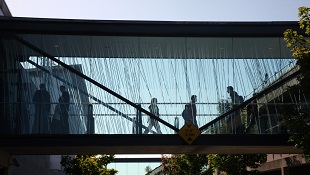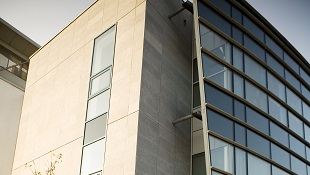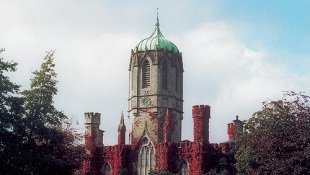-
Courses

Courses
Choosing a course is one of the most important decisions you'll ever make! View our courses and see what our students and lecturers have to say about the courses you are interested in at the links below.
-
University Life

University Life
Each year more than 4,000 choose University of Galway as their University of choice. Find out what life at University of Galway is all about here.
-
About University of Galway

About University of Galway
Since 1845, University of Galway has been sharing the highest quality teaching and research with Ireland and the world. Find out what makes our University so special – from our distinguished history to the latest news and campus developments.
-
Colleges & Schools

Colleges & Schools
University of Galway has earned international recognition as a research-led university with a commitment to top quality teaching across a range of key areas of expertise.
-
Research & Innovation

Research & Innovation
University of Galway’s vibrant research community take on some of the most pressing challenges of our times.
-
Business & Industry

Guiding Breakthrough Research at University of Galway
We explore and facilitate commercial opportunities for the research community at University of Galway, as well as facilitating industry partnership.
-
Alumni & Friends

Alumni & Friends
There are 128,000 University of Galway alumni worldwide. Stay connected to your alumni community! Join our social networks and update your details online.
-
Community Engagement

Community Engagement
At University of Galway, we believe that the best learning takes place when you apply what you learn in a real world context. That's why many of our courses include work placements or community projects.
News
Low smoke doesn’t mean low‑risk: All solid fuels found to emit ultrafine particles
New research led by University of Galway has found that burning "low smoke" manufactured fuels release tiny ultrafine particles that are potentially more harmful to human health. Scientists at the University’s Ryan Institute carried out a series of controlled burn experiments using peat, wood, “low‑smoke” manufactured products, including “low‑smoke” coal - where smoky coal has been prohibited since 2022 - in domestic stoves to understand exactly what different home‑heating fuels release into the air. The researchers measured the smoke using advanced instruments that track how many particles are produced, how big they are, and what they are made of. The team also collected real‑world air measurements in Dublin and Birr, Co Offaly over several years, allowing them to compare laboratory results with what people actually breathe during winter pollution episodes. By combining these measurements with statistical fingerprinting techniques and established lung‑deposition models, the researchers identified which fuels contribute most to harmful pollution and how deeply those particles can penetrate into the respiratory system. The results - observed in a “low smoke” zone in Ireland but relevant across Europe and highly consequential for rapidly transitioning regions such as China and India - show that EU, international and national regulatory frameworks need to respond faster to the growing body of scientific evidence. The research has been published in Nature Geosciences here. The study was led by the Centre for Climate and Air Pollution Studies, Ryan Institute, University of Galway, in collaboration with partners from Ireland, China, Australia and the USA. Professor Jurgita Ovadnevaite, Director of the Centre for Climate and Air Pollution Studies, Ryan Institute, University of Galway, said: "Our study shows that in trying to cut particulate mass, emissions of the tiniest particles have unintentionally been driven up, which may be even more harmful to human health. These ultrafine particles from 'low smoke' fuels penetrate deepest into the lungs, from there to the cardiovascular system, and they can even reach the brain. “Based on this data, we underscore the need to move away from residential solid fuel burning as part of the wider societal aim to decarbonise the economy by 2050." The findings also highlight the urgent need to revise EU and International air quality standards to include ultrafine particles, ensuring air quality management strategies reduce mass concentration while not increasing ultrafine particle numbers. The study demonstrates that replacing smoky fuels with “low-smoke” counterparts results in a two to three-fold increase in ultrafine particle emissions. Considering that the smaller ultrafine particles can penetrate deeper into the lungs and deposit there, this newly documented trend may offset some of the benefits of reducing smoke emissions. Instead of reducing the human exposure to ultrafine particles by reducing the total particulate matter (PM) mass, it results in an increase in the number of ultrafine particles and, potentially, health effects. Study shows that the particle number concentrations are significantly (ten times) underestimated in current air quality models Air pollution is responsible for several million premature deaths worldwide each year. A major driver behind this alarming statistic is exposure to airborne fine particulate matter (PM2.5; less than 2.5 µm in diameter). Even in Ireland – often perceived as having clean air – PM2.5 pollution is linked to more than 1,700 premature deaths annually. Compared to PM2.5, ultrafine particles (less than 100 nm in diameter) induce more severe pulmonary inflammation and exhibit prolonged lung retention due to their ability to penetrate deep into the respiratory tract, even crossing the bloodbrain barrier. Their toxicity increases with decreasing size, larger specific surface area, surface-bound constituents, and inherent physical properties. Despite the health burden of ultrafine particles being increasingly recognised in European policy with the recently revised Ambient Air Quality Directive (EU 2024/2881), which for the first time introduces mandatory monitoring of ultrafine particles across Member States. This study adds to the body of evidence that the directive needs to go even further and define binding regulatory limit values for ultrafine particles. The Centre for Climate and Air Pollution Studies at University of Galway provides evidence to national and EU policymakers, supporting the development of air‑quality standards, emission‑reduction strategies, and climate‑action planning. Its work underpins Ireland’s capacity to meet emerging regulatory requirements, including the new EU obligations for ultrafine particle monitoring. The research was funded by the Environmental Protection Agency, Department of Climate, Energy and the Environment and Taighde Éireann – Research Ireland. Ends
University of Galway welcomes Government funding for new School of Medicine Building
University of Galway marks fourth anniversary of invasion of Ukraine
Mol nua do Theicneolaíochtaí Sláinte faoi threoir taighde seolta arbh fhiú €34 milliún é
Friday, 16 December 2022
All eligible University of Galway full time and part time hourly payscales have been updated in line with the provisions of Building Momentum - A New Public Service Agreement 2021-22. Specifically the following increases have been implemented: - With effect from 02nd February 2022, payscales received a 3% increase - With effect from 01st October 2022- payscales received a further 1% increase or €500, whichever is greater We are still awaiting sanction for the implementation of FEMPI restoration wef 1st July 2022 (save for a limited number of pay scales). Therefore there are no changes to those grades\pensions for now. See paragraph 1.3 in the above link for more details. Further advice will be issued for these grades in due course.
Monday, 24 April 2023
We have been asked to bring to your attention the fact that Secondment Expression of Interest Notices has been issued for the Public Service Transformation Division of the Department of Public Expenditure, NDP Delivery and Reform. Expressions of interest are invited from across all sectors of the Public Service, including higher education, and across a number of grades. Notices are available directly at the following link, and DPENDR and DFHERIS would very much appreciate your support in circulating to your staff. The closing date for applications is 2nd May, and we understand the notices issued on Friday 14th April.


















